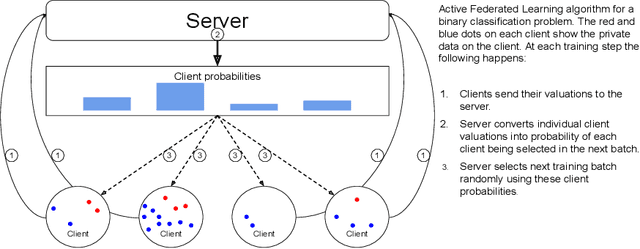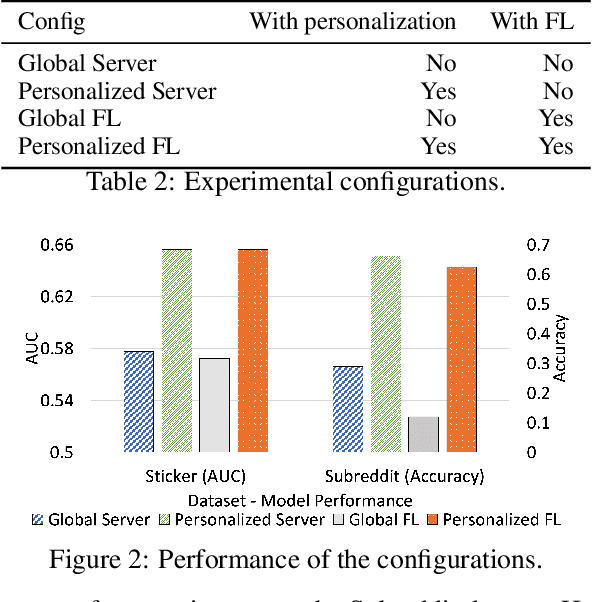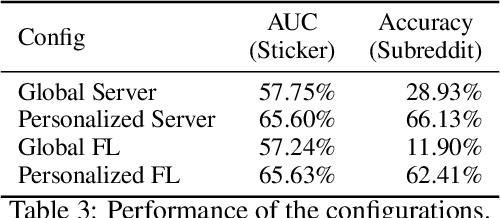Duc Bui
Active Federated Learning
Sep 27, 2019


Abstract:Federated Learning allows for population level models to be trained without centralizing client data by transmitting the global model to clients, calculating gradients locally, then averaging the gradients. Downloading models and uploading gradients uses the client's bandwidth, so minimizing these transmission costs is important. The data on each client is highly variable, so the benefit of training on different clients may differ dramatically. To exploit this we propose Active Federated Learning, where in each round clients are selected not uniformly at random, but with a probability conditioned on the current model and the data on the client to maximize efficiency. We propose a cheap, simple and intuitive sampling scheme which reduces the number of required training iterations by 20-70% while maintaining the same model accuracy, and which mimics well known resampling techniques under certain conditions.
Federated User Representation Learning
Sep 27, 2019



Abstract:Collaborative personalization, such as through learned user representations (embeddings), can improve the prediction accuracy of neural-network-based models significantly. We propose Federated User Representation Learning (FURL), a simple, scalable, privacy-preserving and resource-efficient way to utilize existing neural personalization techniques in the Federated Learning (FL) setting. FURL divides model parameters into federated and private parameters. Private parameters, such as private user embeddings, are trained locally, but unlike federated parameters, they are not transferred to or averaged on the server. We show theoretically that this parameter split does not affect training for most model personalization approaches. Storing user embeddings locally not only preserves user privacy, but also improves memory locality of personalization compared to on-server training. We evaluate FURL on two datasets, demonstrating a significant improvement in model quality with 8% and 51% performance increases, and approximately the same level of performance as centralized training with only 0% and 4% reductions. Furthermore, we show that user embeddings learned in FL and the centralized setting have a very similar structure, indicating that FURL can learn collaboratively through the shared parameters while preserving user privacy.
 Add to Chrome
Add to Chrome Add to Firefox
Add to Firefox Add to Edge
Add to Edge